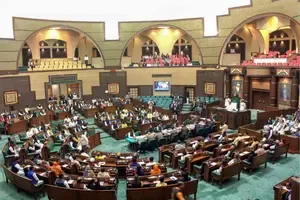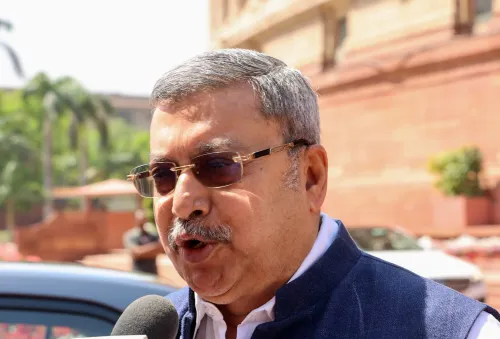Madhya Pradesh Assembly's 5-Day Session Wraps Up with 10 Bills Passed Amidst Intense Drama

Bhopal, Dec 20 (NationPress) As the five-day winter session of the Madhya Pradesh Legislative Assembly came to a close on Friday, a total of 10 Bills (Amendments) were successfully passed during the House proceedings.
Throughout the five days, significant drama and protests erupted concerning various public issues, with allegations and counter-allegations exchanged between the ruling BJP and opposition Congress both inside and outside the House.
Despite the heated exchanges between BJP and Congress members, the scheduled business was conducted, which included a supplementary budget of Rs 22,460 crore designated for multiple departments to fund crucial projects.
The BJP-led state government introduced 10 Bills (Amendments) covering various topics, all of which passed with a majority. Interestingly, several were approved without extensive discussion, with the Opposition also consenting to them.
Discussions in the Assembly primarily focused on two significant Bills: one concerning private school fees aimed at curbing the arbitrary fee increases by private institutions, and the other being the 'Jan Vishwas' (Amendment of Provisions) Bill-2024.
The government stated that the Amendment Bill targets schools charging over Rs 25,000 annually and imposing unreasonable fees for services like transportation. A high-power committee will be set up to oversee the school fee situation.
The MP Assembly also enacted the 'Jan Vishwas (Amendment of Provisions) Bill-2024', becoming the first state to do so, inspired by the central government’s Jan Vishwas Act, 2023, as per a government release.
This Bill aims to facilitate life and business for the public and entrepreneurs by streamlining legal processes and enhancing transparency.
The government explained that the Bill modifies 64 sections across eight acts spanning five departments of the state, which include Industrial Policy and Investment Promotion, Energy, Co-operation, Labour, and Urban Development and Housing departments.
Among the reforms are changes such as converting imprisonment into fines, changing punishments to penalties, and adding compounding provisions. Furthermore, 920 outdated acts were abolished, according to the government.









